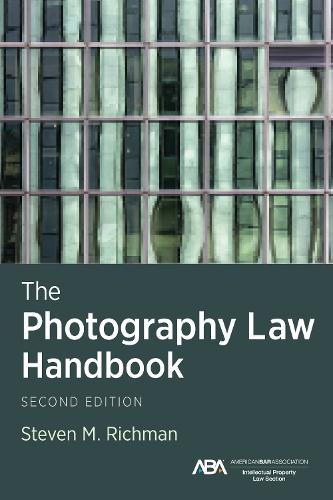
The Photography Law Handbook, Second Edition
(Paperback)
Publishing Details
The Photography Law Handbook, Second Edition
By (Author) Steven M. Richman
American Bar Association
American Bar Association
7th September 2022
United States
Classifications
General
Non Fiction
Entertainment and media law
343.7307877
Physical Properties
Paperback
399
Width 152mm, Height 228mm
Description
The ethical and moral debate about photographic images in this global society continues to increase dramatically. Freedom of speech and the right of privacy are more and more in conflict. This updated book provides both a practical and personal perspective on the photographer's critical rights and obligations.
This unique resource covers core areas of intellectual property law, tort law, and criminal law and contains necessary information for lawyers, photographers, and content creators. The book covers copyright, privacy and defamation, trespass, social media--and includes discussions about the evolution of drone photography. Lawyer and photographer Steven Richman uses several additional cases and situations to illustrate the potential pitfalls a photographer may encounter.
Author Bio
Steven Salky, a partner at Zuckerman Spaeder, LLP, represents individuals in white collar criminal cases, regulatory agency investigations, and civil litigation. He has extensive experience representing executives of public companies in securities fraud investigations and parallel civil litigations and has spent much of the past five years representing the former chief financial officers of Freddie Mac and Fannie Mae in proceedings arising from these companies' restatements of earnings. He regularly represents executives in environmental, antitrust, and healthcare fraud investigations, as well as professionals, including lawyers, doctors, and accountants, in litigation involving their compliance with professional obligations. While in law school Mr. Salky was awarded the Harlan Fiske Stone prize for the best oralist in Yale Law School's Moot Court Competition. After graduating from law school, Mr. Salky clerked for then Chief Judge Theodore R. Newman, Jr., of the District of Columbia Court of Appeals, before beginning a two-year teaching fellowship at the Georgetown University Law Center. As the Stuart Stiller Fellow at Georgetown's Criminal Justice Clinic, he represented indigent criminal defendants and supervised third-year law students in court.
